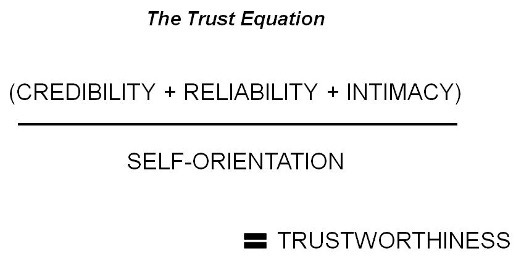How to Build Trust at Work: Practical Strategies to Strengthen Your Leadership and Relationships

In today’s world of hybrid teams, burnout, and generational divides, trust isn’t just a “nice to have” — it’s a career necessity.
Whether you’re a leader managing remote teams, an HR professional designing development programmes, or an employee navigating your own career path, trust is the glue that holds it all together. It’s also one of the most important elements in career conversations, mentoring relationships, and employee engagement — all areas I speak and write about regularly.
If you want to become a trusted manager, you can never say “trust me”: you will sound like a second-hand car salesman or, even worse, a politician. Trust has to be earned.
But here’s the thing: trust is built in small, everyday moments. It’s not about grand gestures. It’s about showing up consistently and authentically.
So how do you build your trustworthiness? Let me share a simple framework I use in my work with organisations around the world.
Four elements of trust
The Trust Equation outlines the four elements of trust that you can work on to become a trusted and respected leader.
It was developed by Charles Green, author of “The Trusted Advisor”.

When you increase credibility, reliability, and intimacy (the factors above the line), your trustworthiness increases. When you increase your self-orientation (the factor below the line), you decrease your trustworthiness.
To be exceptionally trustworthy requires high scores on all three factors above the line and a low score on self-orientation
1 – Credibility. Be Clear About What You Know (and What You Don’t)
Credibility generally has to do with your words.
It is derived from what you know as well as how you communicate. Credibility includes your honesty and your presence.
Someone might say, “I can trust what she says about employment law. She is very credible on the subject.”
It is easy to use weak phrases such as “I will try… I will do my best… I will look into it… I will see what can be done.” These give us the perfect excuse to come back two weeks later and say, “I looked into it, but it was not possible.” At that moment, all our credibility vanishes because what we said and what others heard were completely different. What others heard was not the weak excuse; what they will have heard was “I will….”
Credibility means you need the courage to have a difficult conversation about expectations at the start. That is better than an impossible conversation about outcomes at the end.
Employees will be more likely to respect a manager who can talk openly with them about difficult situations, answers questions and give them the facts. In turn, this should encourage employees to be honest themselves and bring difficult topics to the table, be it with their manager or their peers.
Ways to Increase your Credibility and trustworthiness
- Develop deep expertise in your specialism
- Regularly update your skills
- Stay current with trends and news about your team, function, company and industry
- Offer your point of view when you have one
- Be honest even during tough times
- Share whatever information you can – when people feel trusted, they’ll trust you back
- Be willing to say “I don’t know” when “I don’t know” is the honest answer
- Express passion for your subject
- Ask questions and show an eagerness to learn
- Communicate confidently – firm handshake, direct eye contact (when culturally appropriate), and a confident (not arrogant) air.
2 – Reliability. Do What You Say You’ll Do — Every Time
Reliability typically has to do with actions.
A colleague might say, “If he says he’ll deliver the product tomorrow, I trust him, because he’s someone who does what he says he will.”
Reliability is rooted in consistency, predictability, and a feeling of familiarity and certainty.
People know they get what they expect – they won’t be surprised or disappointed by you.
Ways to Boost Your Reliability and trustworthiness
- State expectations up front and report on them regularly
- Make lots of small promises and consistently follow through on them
- Be on time (as culturally appropriate)
- Communicate if you fall behind and take responsibility for it
- Admit to mistakes and take action to rectify them
- Use others’ language, templates, dress code, and so on, respecting their norms and environment
3 – Intimacy. Build Psychological Safety and Personal Connection
Although it is not a word we use often in a business context, Intimacy is a key part of the Trust Equation.
It refers to the safety you feel when entrusting someone with something.
A colleague might say “I can trust her with that information – she’s never violated my confidentiality before, and she would never embarrass me.”
Intimacy relies on creating personal connections. It means getting to know others beyond their job description and day-to-day tasks to build a relationship with them.
It also involves sharing your full self and expressing vulnerability.
Ways to Promote Intimacy in a Relationship
Listen beyond another’s words by tuning in to tone, emotion, and mood, and then acknowledge those elements out loud
Tell someone what you really appreciate about them, rather than keeping it to yourself
Use a person’s name
Share something personal about yourself – it makes you human and far more interesting
Provide meaningful recognition and appreciation.
Socialise outside work.
Ask questions. Find out what you have in common: education, holidays, personal and professional interests.
Note: Use your own best judgement when asking questions – don’t invade their privacy
4 – Self-Orientation
The variable most people identify as a significant opportunity for improvement in is Self-Orientation.
Self-orientation is about who you focus on – yourself or others. To build trust, you need to show you care about others and that you’re not just focused on your own agenda.
You want the person you work with to be able to say “I trust that she cares about me and how this project will impact my career.” That shows you display a low-level of self-orientation and that’s good.
If the person you work with says, “He cares about his reputation,” “He cares about getting the budget,” or “He is focused on getting ahead,” then you have a high level of self-orientation. And that’s not good. It is hard to trust someone who seems to be playing for the opposition.
Focussing on others is hard work, because most organisations are set up for competition. The way that priorities are decided, resources allocated, promotions made is through a process of constant (and hopefully constructive) conflict where the best ideas and people emerge successfully. Again, listening is vital. You cannot focus on others if you do not really understand what their priorities are. The skill is to then find the win-win where you have a common need and common agenda you can both work on.
Most people don’t obviously display high levels of focussing on themselves. But self-orientation can sneak into interactions in more subtle, insidious ways.
For example:
Rushing to a solution
Hoarding information, resources, and ideas
Talking a lot
Subtly competing for attention and recognition
Strategies to lower your Self-Orientation
- Take the time to find the best solution
- Share time, resources, and ideas
- Be curious and ask lots of questions to figure out what success for the other person really looks like
- Negotiate for a true win-win
- Be silent and listen even when it is uncomfortable
- Speak hard truths even when it feels awkward to do so
- Give credit to others
- Show appreciation and recognition
Where Trust Meets the COMPASS Framework
Trust-building runs through every part of my COMPASS approach to career development:
- Clarity: Trust starts with being clear about your values and goals.
- Ownership: You build trust by taking responsibility for your words and actions.
- Mindset: A growth mindset helps you show up authentically, even when you’re still learning.
- People: Relationships are your greatest asset — and trust is the foundation.
- Amplify: Trustworthy behaviour earns influence and credibility.
- Success: Long-term career success comes from mutual trust and respect.
- Small Steps: Trust is built moment by moment, conversation by conversation.
Reflection: Where Do You Stand?
Take a moment to reflect:
- Which part of the trust equation is your strongest?
- Where could you focus a bit more attention this week?
Building trust isn’t about a title or tenure. It’s about how you show up — every day, in every interaction.
Ready to Build a Culture of Trust in Your Organisation?
If you’d like to explore how to build trust through mentoring, career conversations, or leadership development, let’s talk.
Download a free chapter of my book Confident Career Conversations to discover practical tools and insights.
Or…
Book me to speak at your next event and let’s inspire your people to lead with trust and connection in today’s world of work.